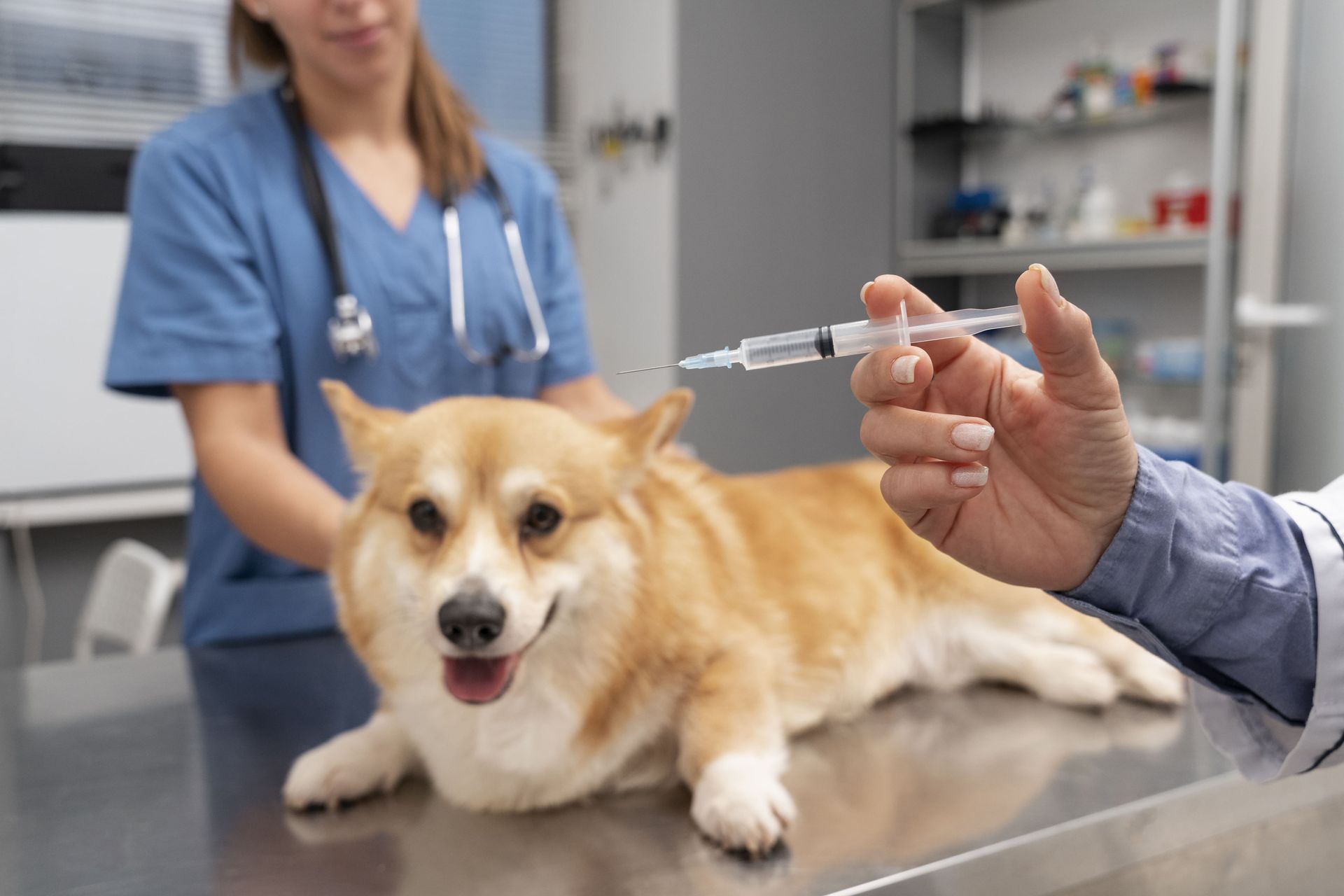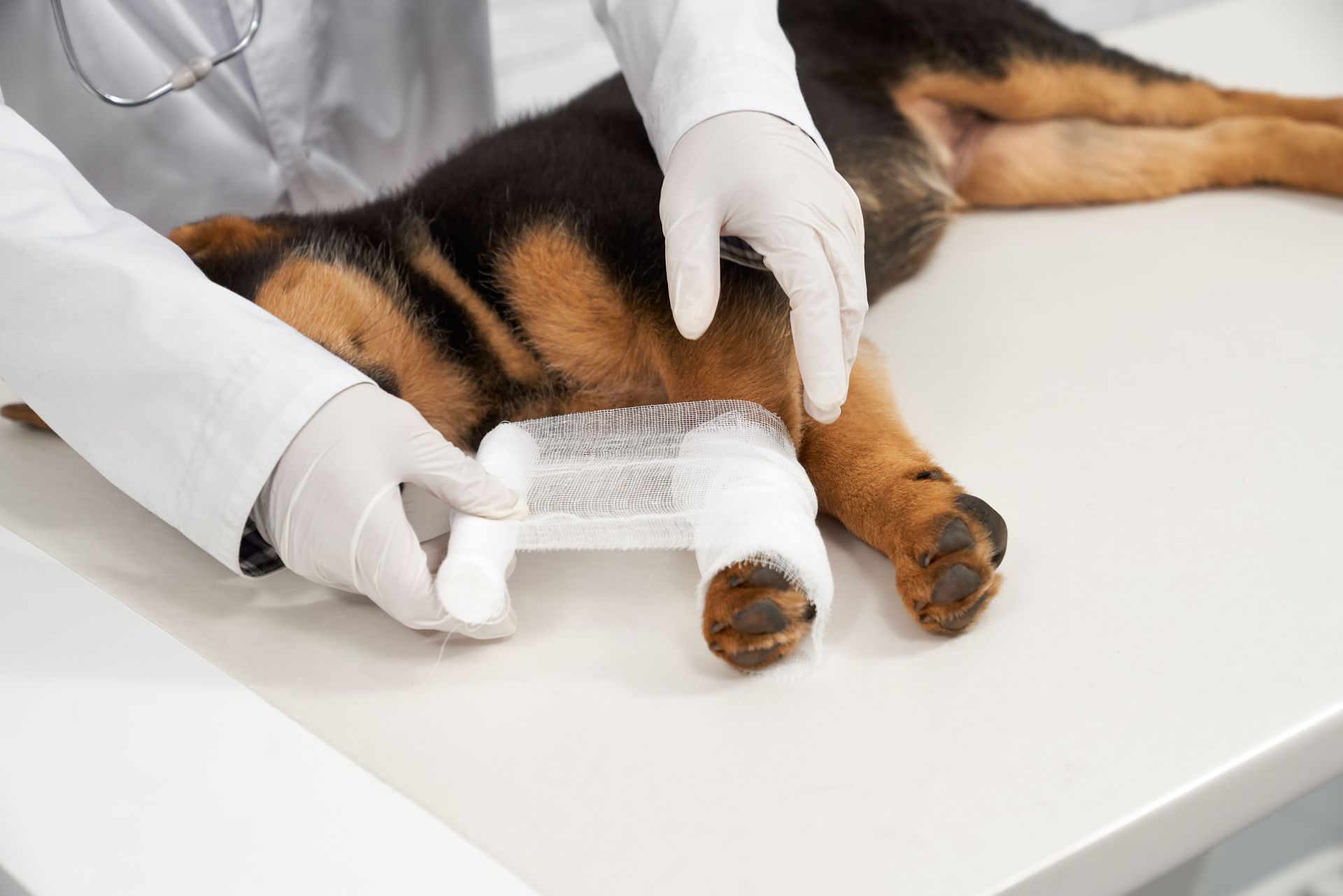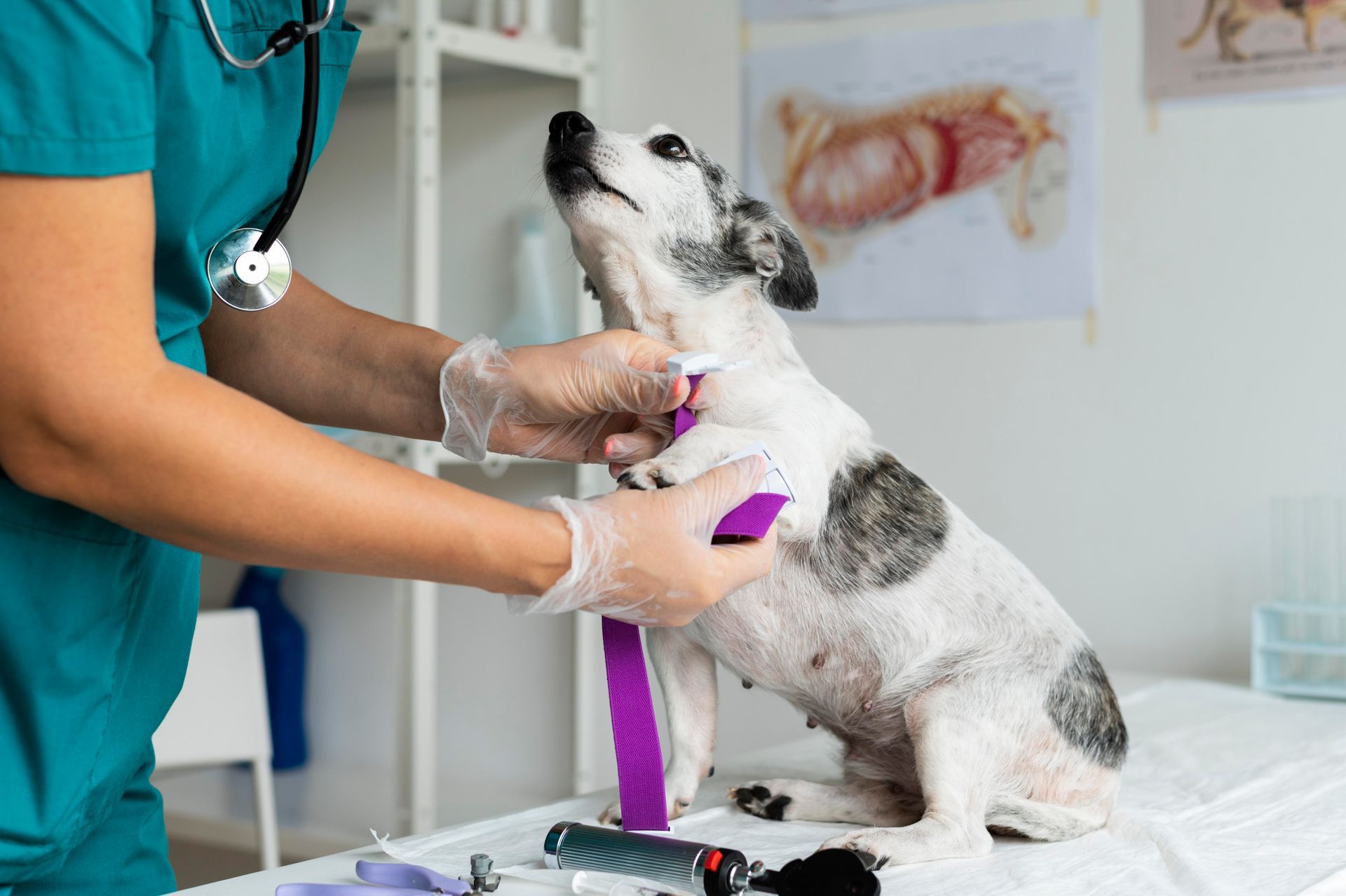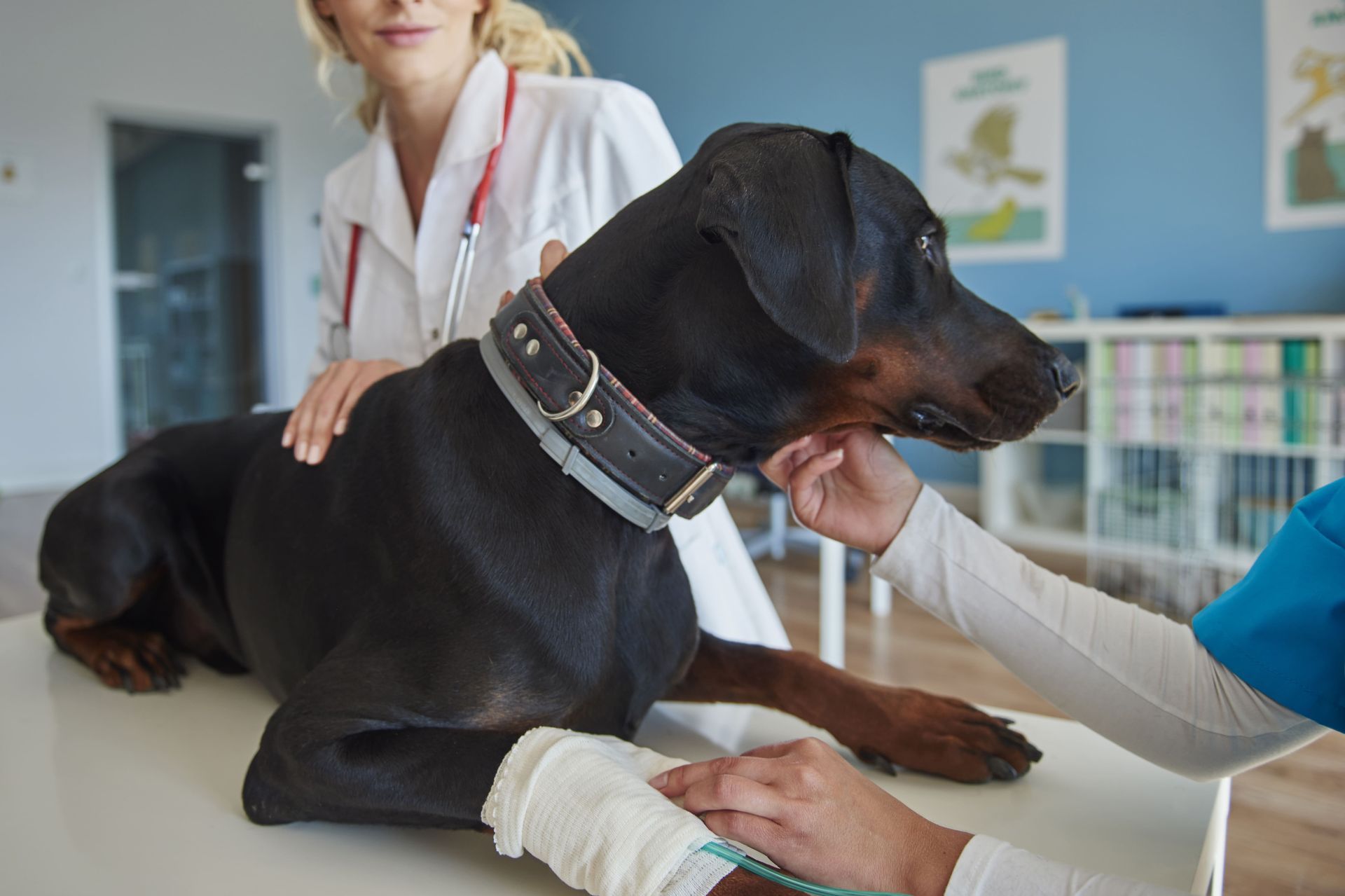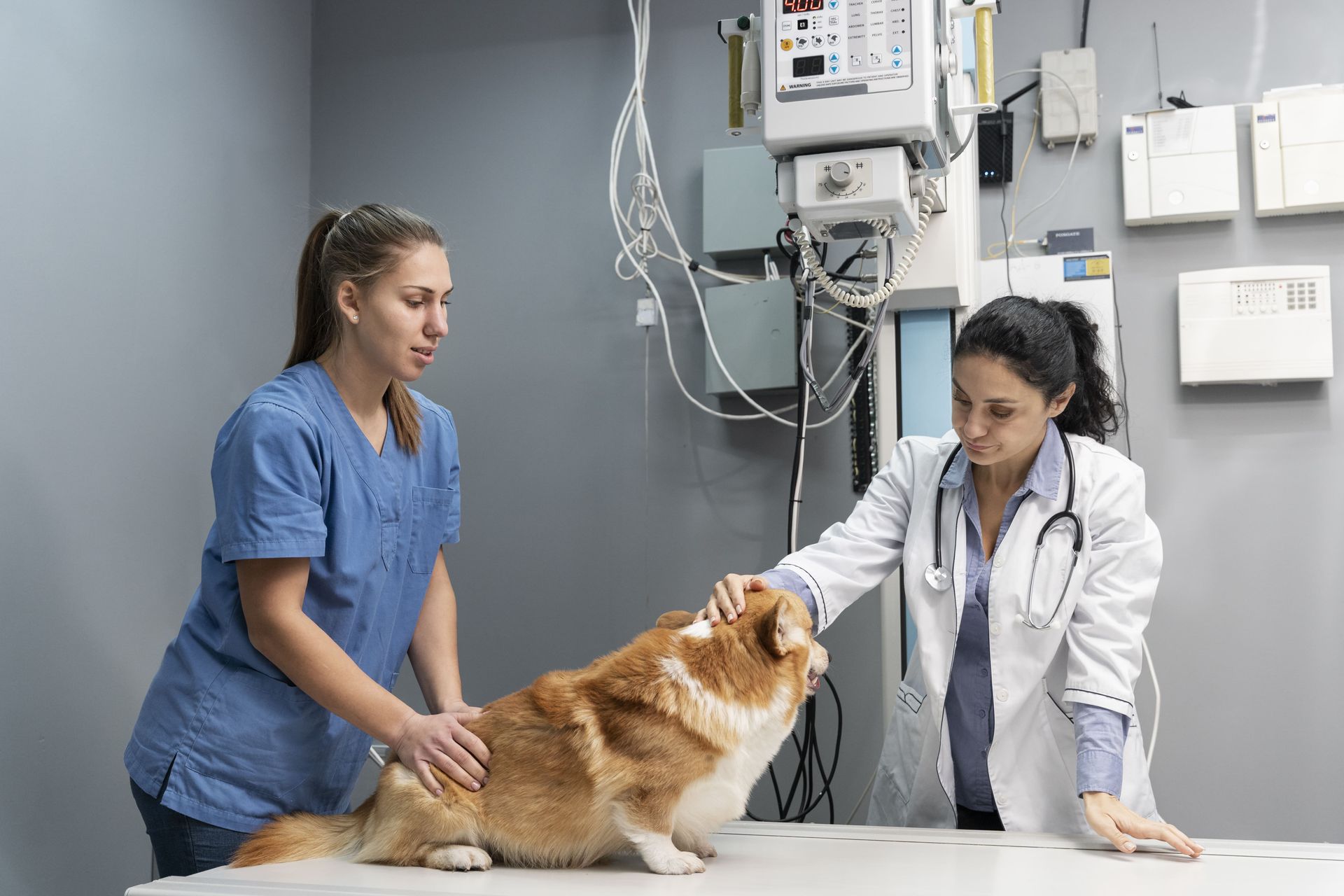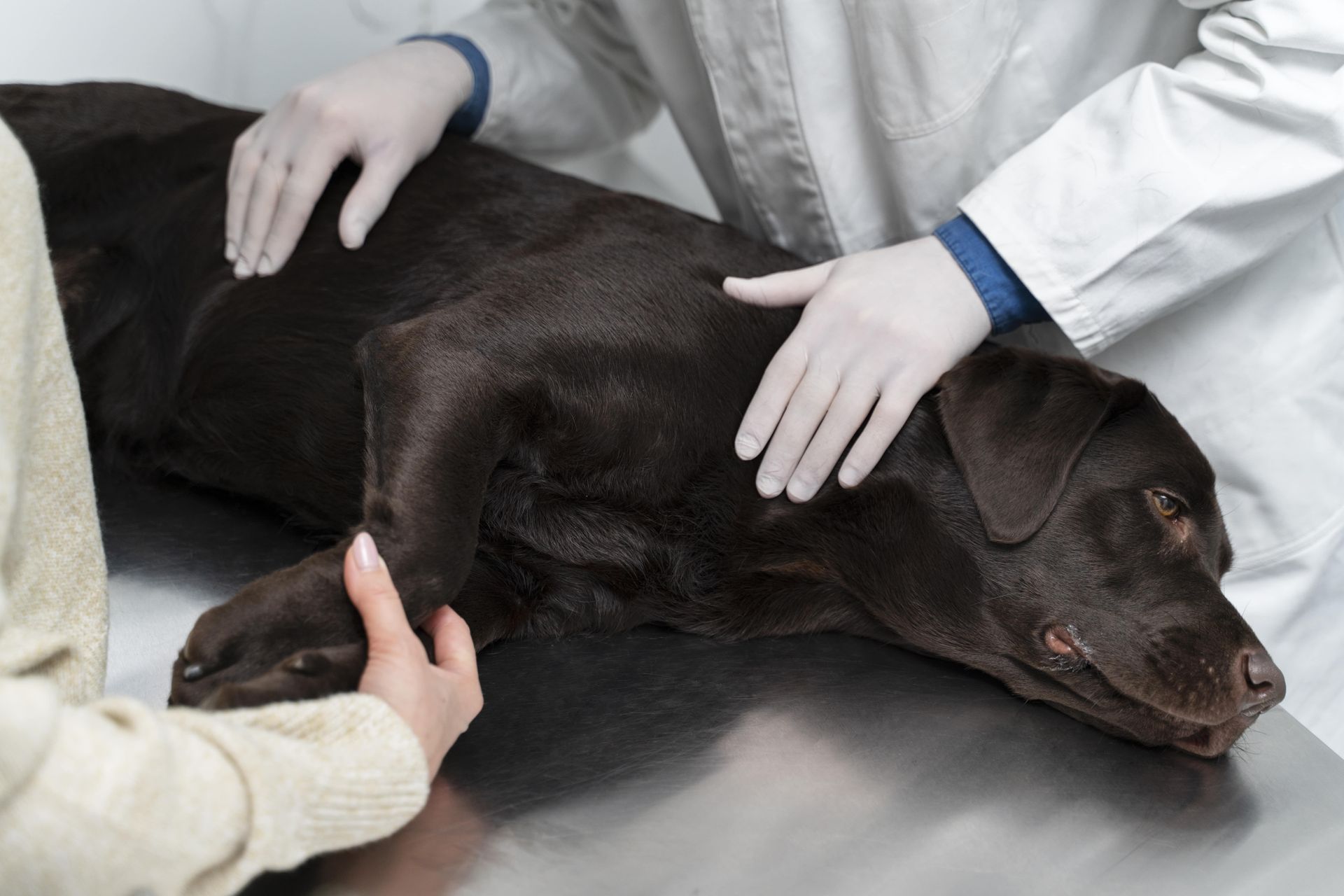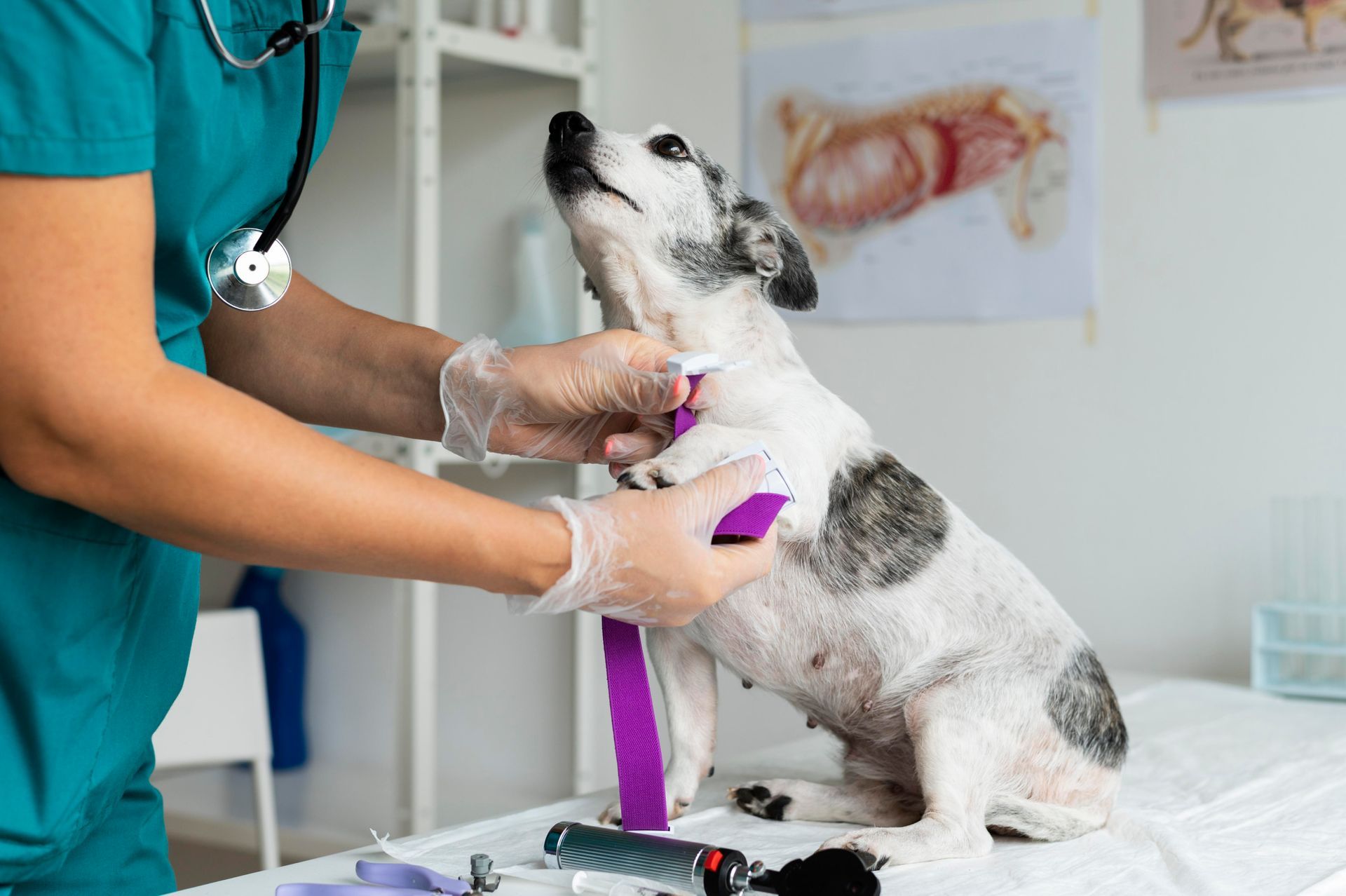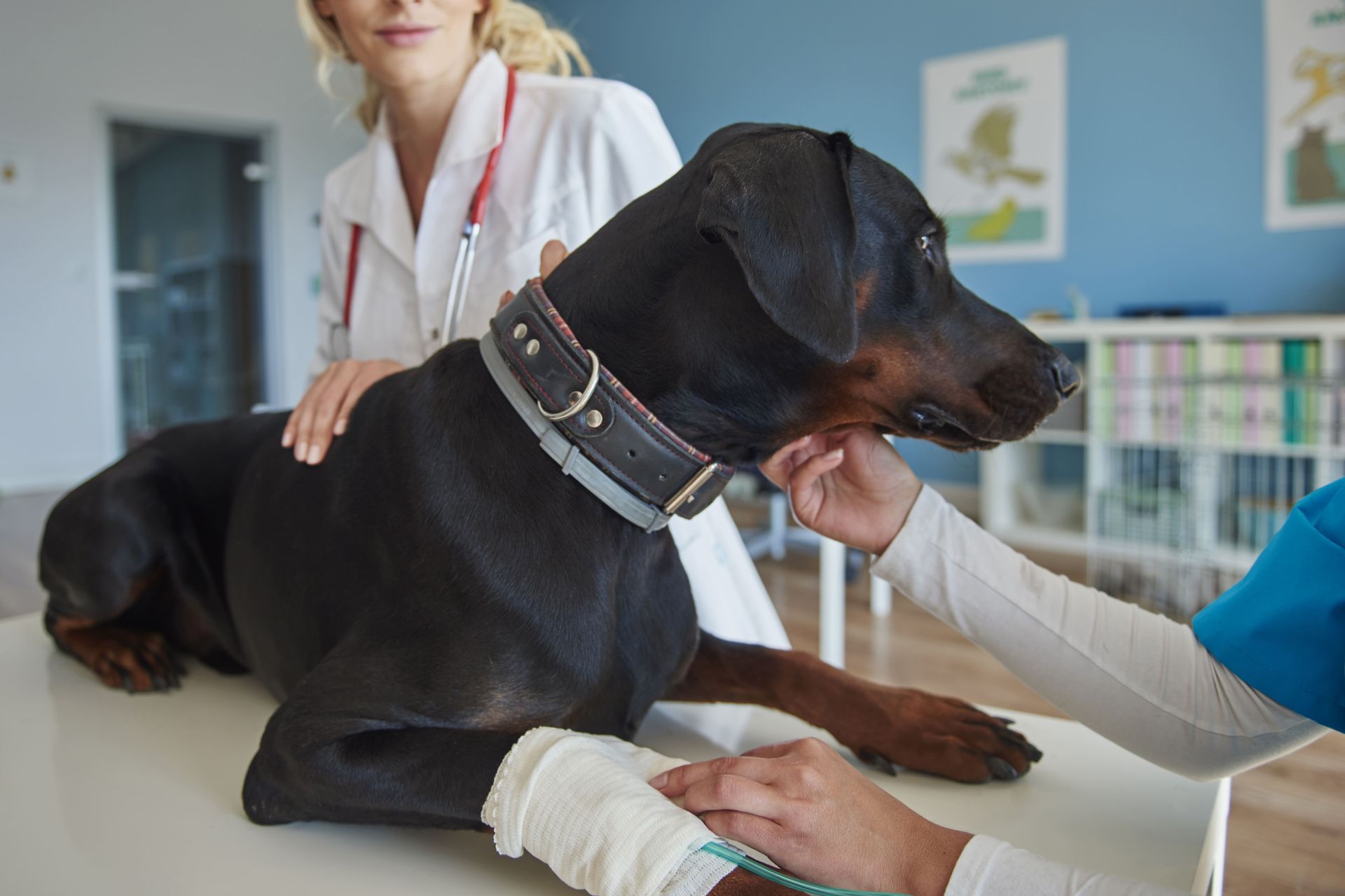7 Tips to Prepare Your Canine Friend for a Dog X-Ray
A vet visit can rattle even the most laid-back pups, but throw in a dog X-ray, and things can get a little ruff. Between unfamiliar sounds, new faces, and strange equipment, it’s no wonder your four-legged friend might feel anxious. As a pet parent, you want the process to be as stress-free as possible, for both of you. That’s where preparation makes all the difference. Whether it’s their first X-ray
or a follow-up check, a few thoughtful steps can help ease nerves, build trust, and turn a tense trip to the vet into a calm, manageable experience. From choosing the perfect appointment time to bringing their favorite comfort toy, each small effort adds up to a smoother day for your dog. In this guide, we’re sharing seven essential tips to help you prepare for your dog’s X-ray appointment, so your pup stays relaxed, and you walk out feeling like the best dog parent ever.
1. Schedule an Appointment Wisely
Ensure to book an appointment
at a time when your dog is usually calm and relaxed. Avoid scheduling during high-energy periods or mealtimes to minimize stress. Consider your dog's daily routine; perhaps a midday slot serves best when they are more likely to be resting. By selecting a less hectic time of day, you are setting the stage for a more straightforward visit.
In addition to timing, choose a day when you can devote your full attention to your dog's appointment. By being present and unrushed, you give your dog extra reassurance and comfort throughout the process. Having sufficient time means you can also spend a few minutes in the waiting room to help your pet acclimate to the environment before the dog X-ray begins.
2. Consult with Your Veterinarian
Have a conversation with your vet about what to expect during the dog X-ray process. Understanding the procedure will help you and your dog feel more at ease. Don’t hesitate to ask questions such as the duration of the X-ray, whether sedation is required, and any potential side effects your pet might experience post-procedure.
Your trusted vet
might also offer specific advice tailored to your dog's health history or personality. This personalized insight ensures that you are fully prepared for any unique needs your canine companion might have during the dog X-ray. The more information you gather, the better you can anticipate and address any issues as they arise.
3. Practice Gentle Restraint Techniques
Familiarize your dog with gentle restraint methods at home. This can be done by calmly holding them in different positions to simulate what might happen at the vet. Incorporate these exercises into a playful routine so it becomes a positive experience, rewarding your dog for staying calm and cooperative.
Practicing at home reduces the element of surprise during the actual vet visit. It also gives your dog the confidence to remain steady when placed in unfamiliar positions on the dog X-ray table. Patiently walk through these techniques frequently in the days leading up to the appointment to reinforce positive behavior.
4. Keep Comfort Items Handy
Bring along your dog's favorite toy or blanket. Familiar items can provide a source of comfort and help ease anxiety during the process. These items act as a security blanket, offering solace when surrounded by new sounds and smells typical of a veterinary clinic.
Having a piece of home with them can make all the difference in their stress levels. Sometimes, just the scent of a familiar toy or blanket can calm them enough to make the dog X-ray procedure smoother. It's these small comforts that can have a big impact on a dog's emotional state.
5. Limit Food and Water Before the Visit
Refrain from feeding your dog large meals or giving them too much water right before the appointment. This helps avoid any discomfort during the procedure. Veterinarians often recommend fasting before procedures requiring sedation to reduce the risk of aspiration.
If your vet doesn't specify fasting regulations, it is still wise to limit heavy meals. Offer a small snack if your dog typically requires food, but ensure they finish at least a few hours before the dog X-ray appointment. This helps them remain comfortable and prevents any tummy troubles while on the X-ray table.
6. Use Calming Signals
Talk softly and maintain a relaxed demeanor to reassure your dog. Your calmness can greatly influence their level of anxiety and help them feel safe. Simple acts of gentle petting paired with soothing words can work wonders for an anxious pet.
Dogs are incredibly perceptive to our body language and emotions, so practicing calmness yourself will naturally help your dog mirror the behavior. Avoid sudden movements or loud noises, and instead, maintain a tranquil environment as much as possible, even in the moments right before the dog X-ray begins.
7. Plan Post-visit Relaxation
Once the dog X-ray is done, give your dog some extra love and care. A relaxing walk or some cuddles at home can help them de-stress after the appointment. This is an excellent time to reinforce positive experiences, using treats or playtime to reward their bravery and good behavior.
Consider setting up a quiet space with their favorite belongings where they can retreat and unwind. Offering a special treat or meal post-visit is also a way to reaffirm positive associations with the dog X-ray experience. Through supportive post-care, you assure them that their efforts have been worthwhile and that they are cherished.
Final Words
A dog X-ray appointment doesn't have to be overwhelming—for you or your furry friend. With thoughtful preparation, calm energy, and a few familiar comforts, you can turn a potentially stressful experience into a manageable one. By following these tips, not only will the visit go smoother, but your dog will also begin to trust vet visits more deeply.
Remember, your dog takes emotional cues from you. So walk in confident, prepared, and ready to support your best buddy every step of the way!
Frequently Asked Questions
Q-1. How long does a typical dog X-ray take?
Ans: Most dog X-rays take around 10 to 30 minutes, depending on the complexity and whether sedation is required.
Q-2. Will my dog need to be sedated for the X-ray?
Ans: Not always. Sedation is only necessary if your dog is extremely anxious, in pain, or needs to be completely still for the images to be clear.
Q-3. Can I stay with my dog during the X-ray?
Ans: In most clinics, pet parents are asked to step out of the room during the dog X-ray for safety reasons, due to radiation exposure.
Q-4. Is a dog X-ray painful?
Ans: No, the process is painless. However, some dogs may feel uncomfortable if they are required to hold still or lie in certain positions.

